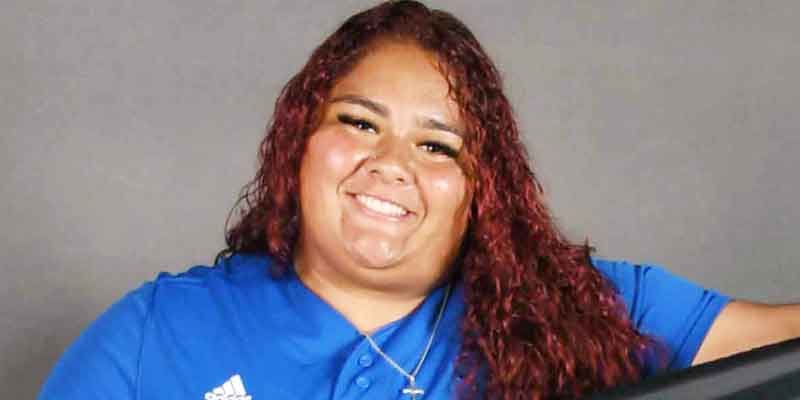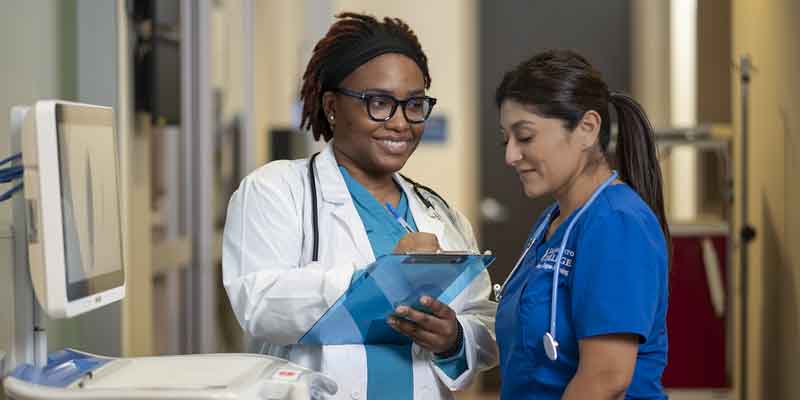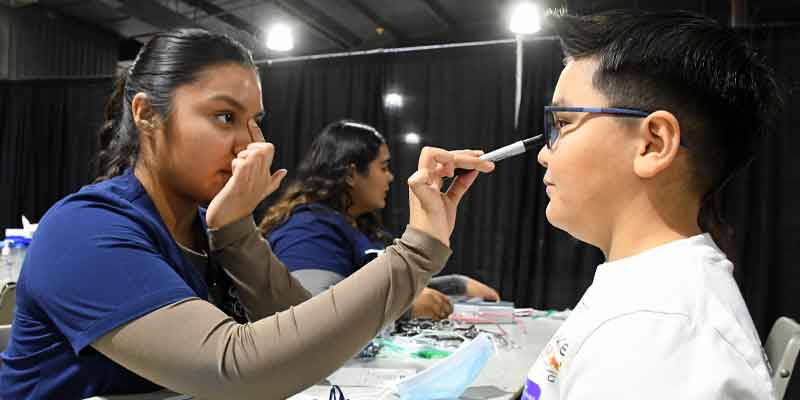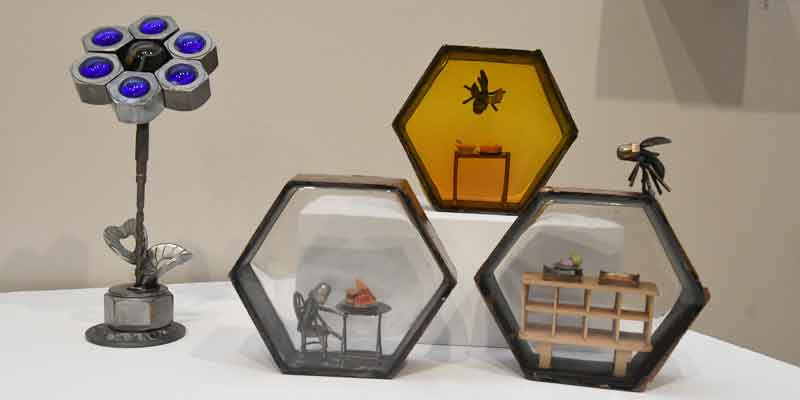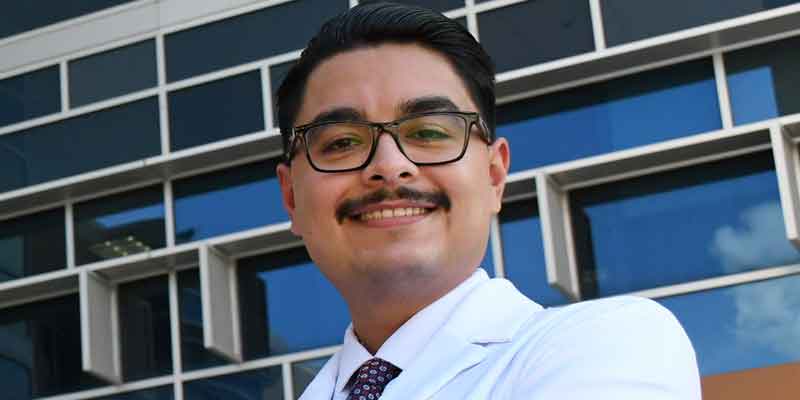
Robin Torres felt lost, alone. Not only was El Paso 800 miles from family, but hospitals nearby had begun setting up portable morgues. Life in fall 2020 was fragile.
But Torres couldn’t give up. And reflecting on his family’s sacrifices, he wasn’t about to.
“I’m a bit stubborn,” he said.
Discovering medical path
Growing up in Detroit, the son of immigrants, Torres trusted that life would put him where he belonged.
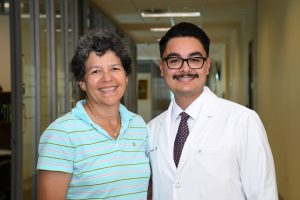
Robin Torres (right) with mentor Yuli Pernia
In 2011, life put the recent high school graduate in Houston, blocks from San Jacinto College’s North Campus. He enrolled as a general studies major, following his father’s advice to find a career using “brains instead of body.”
Uninterested in science at first, he caught a biology professor’s enthusiasm and joined a biodiversity project classifying campus flora and fauna.
“As much as I enjoyed it, I discovered I didn’t want to work with animals and bugs,” he said.
What did interest Torres were people. Another San Jac biology professor, Dr. Yuli Pernia, encouraged him to consider biomedical courses.
Her stories of working as a medical doctor in South America broke the glass ceiling he had created for himself as a first-generation, minority student.
Overcoming isolation
In 2014, Torres completed a biology associate degree and started a pre-med pathway at the University of Houston. But classes with 200-plus students overwhelmed him, and he struggled asking for help.
“I felt like everyone knew what they were doing and I didn’t…. I felt embarrassed to ask classmates for help or to go see pre-med advisors,” he said. “It would have saved me a lot of headaches if I had done that earlier.”
After his bachelor’s degree, he took several gap years to work and apply to multiple medical schools.
The first time he applied, he didn’t get accepted. Pernia and several other doctors encouraged him not to give up: With medical school acceptance rates as low as 2-3%, few people make it the first time.
Persistence paid off. In early 2020, he got accepted to Texas Tech University Health Sciences Center in El Paso.
Torres moved to El Paso just as the world was shutting down. Although he fought loneliness during pandemic lockdowns, this time he connected with other students through online study sessions.
When lockdowns lifted, he volunteered for the El Paso Health Education Awareness Team, which hosted public lectures and workshops on COVID-19. This sparked his interest in public health and emergency medicine.
In May 2024, he graduated with his M.D. degree.
Shifting from mentee to mentor
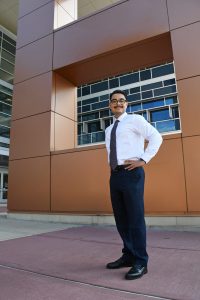
Robin Torres
Now completing his medical residency in Austin, Torres credits his success to his parents and people like Pernia who saw his potential and encouraged him. That’s why he mentors pre-medical students, helping them navigate the complex medical school application process.
“I didn’t want people, especially first-generation students like myself, to feel lost like that,” he said. “It’s very easy to give up when you have all these barriers.”
Today, Torres has achieved more than he ever imagined. Along the way, he learned not to compare himself to others or assume everyone else is more knowledgeable or equipped.
He encourages younger students to ask for help — but to trust their gut.
“It can be scary to figure out what you want to do, but you know you,” he said.
Learn more about San Jac’s STEM programs.
By Courtney Morris


